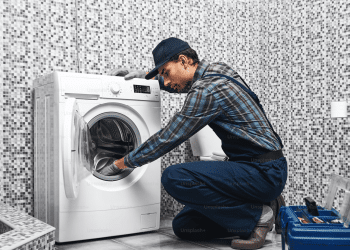On average, a typical American spends up to 90% of their time indoors, where pollutants may be up to five times higher than outside, according to the United States Environmental Protection Agency (EPA). Poor indoor air quality has been linked to a number of health concerns, including respiratory distress, skin rashes, headaches, burning or itchy eyes and fatigue. While this is definitely reason for concern, there is no need to panic just yet. There are a number of things that you can do to ensure that the air inside your home is as clean and beneficial to your overall well-being as possible.
Keep your filters clean
If you make use of an HVAC system, ensure that the filters are well-maintained. These systems work round-the-clock to provide thermal comfort and improved air quality by removing a range of impurities such as pollen and dust from the air. In time, however, the air filters become so clogged with dirt that they stop functioning properly. Dirty and damaged air filters are not only detrimental to your indoor air quality, but to the HVAC system as well. For this reason, it is vital to clean and change your filters at regular intervals. Depending on the type of filter you use, be prepared to clean them anywhere from every three months to yearly. Visibly dirty air is a good indication that your filters need to be either cleaned or replaced. Filters typically do not entail a huge financial investment. You can even save significantly on your next filter purchase by looking around for air filter discount codes and other special offers on a set of filters that will fit the HVAC system you have in your home.
Control the humidity inside your home
High humidity can result in severely compromised air quality in your living space. Depending on where you live, your home can become increasingly humid during the warmer months. This increase in humidity and moisture creates the ideal breeding ground for mold, mildew and dust mites, which can trigger a range of allergic reactions, including asthma. In order to keep your indoor air quality as high as possible, aim to keep the humidity at between 30% and 50%. One of the easiest ways to achieve this is to place a few humidifiers around the house. Other effective methods include using an exhaust fan when cooking, fixing any leaking plumbing, venting your clothes dryers to the outside, and making sure you do not give your indoor plants too much water.
Keep your floors clean
A dirty floor can have a very adverse effect on your indoor air quality, as a range of allergens can collect on your floor surfaces. Where possible, make use of a vacuum cleaner with a HEPA filter that can help you get rid of anything from pollen and pet dander to lead and dust mites. The HEPA filter will ensure that no dirt and dust escapes from the exhaust. In areas that get a lot of foot traffic, you may have to vacuum a few times to ensure that the area is sufficiently clean. After vacuuming, use a mop to clean up any residual dirt off tiled and wooden floors, and give carpeted areas a deep-clean every three months. Remember to put a mat at every door to trap dust and dirt, and don’t be afraid to make your home a shoe-free zone if you have plush carpets.
Poor indoor air quality can lead to an array of health and wellness concerns. Thankfully, there are many things you can do to ensure that the air inside your home is of a good quality.









Comments 1